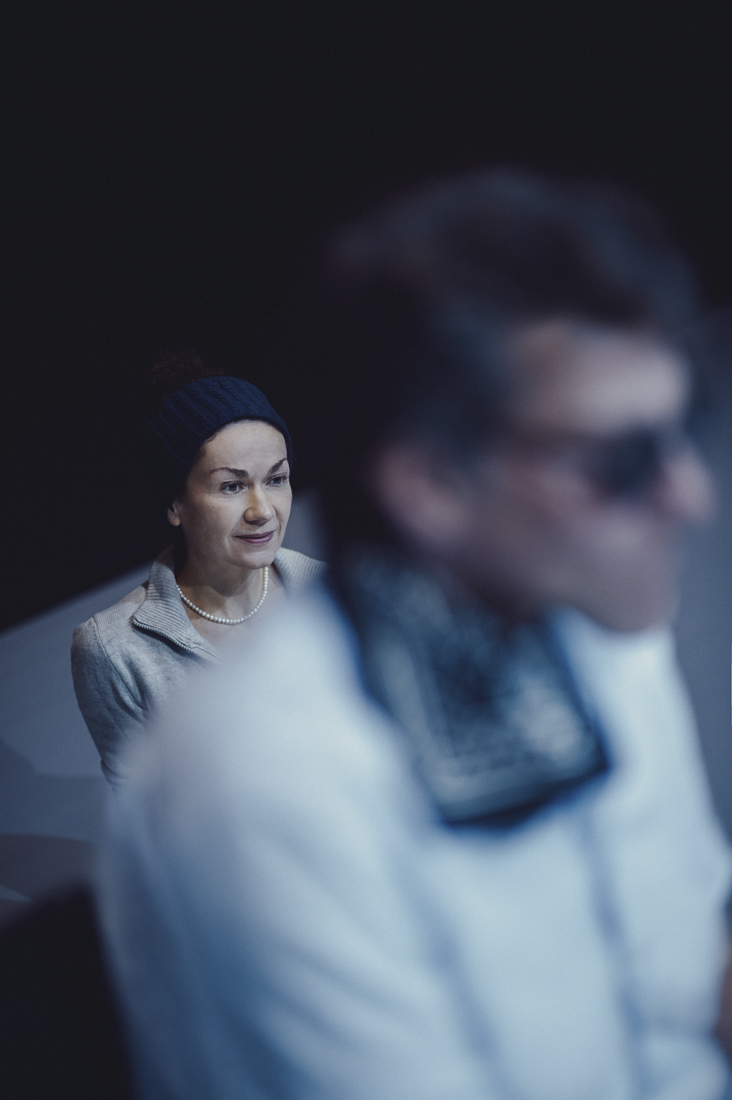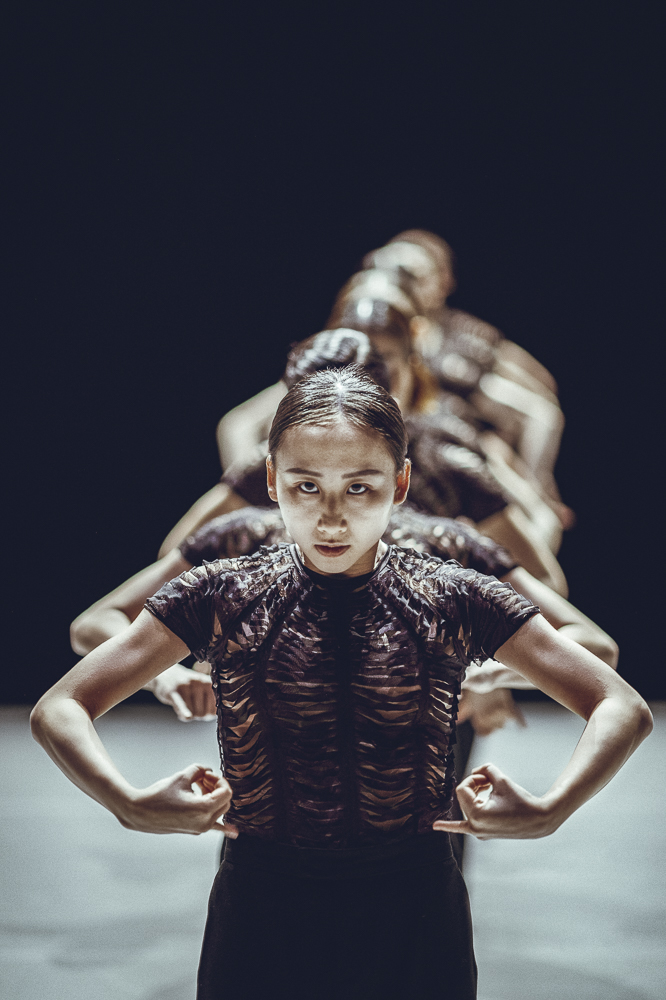In conversation with:
Nadja Kadel
For Close Up #5 we got a chance to talk about her work as a dramaturge and to shed light on this essential role within the creative process.

For Close Up #5 we got a chance to talk about her work as a dramaturge and to shed light on this essential role within the creative process.
Nadja Kadel is a dramaturge, writer and lecturer in the field of dance. After graduating from her studies in educational science, dance therapy and arts management in Germany, the Netherlands, and the US, Kadel started working as a dramaturge for companies worldwide. At NDT, we know her best as Marco Goecke’s trusted dramaturge and confidant, a collaboration that has spanned over almost two decades. Her book Dark Matter, about Marco Goecke’s oeuvre, was published by Königshausen & Neumann in 2016.
In a few words, I see my work as supporting and facilitating the creation of a dance piece. This includes the selection of music, if necessary also of text, the choice of photos, help in finding a title, the design of a programme booklet and above all help in the development and structure of a piece and the constant conversation with the choreographer. In Marco Goecke’s case, dramaturgy also includes making sure that the choreographer is always supplied with water and coffee or that his dog Gustav gets enough snacks, haha.

Just like dramaturgy in acting, dance dramaturgy is used both in a production-oriented sense for the field of work in theatre and in a conceptual and aesthetic sense for the structure of a piece. Even though there is no or little spoken word in dance, there is a dramaturgy of movement within each dance piece that must be coherent in itself for a piece to “function”. Twenty years ago, working with a dramaturge was the exception in dance, but today it is absolutely common.
I have been working with Marco for 17 years. When I saw a piece of his for the first time in 2001 – Chicks at an evening of the Stuttgart Noverre Society – I was só impressed by this completely new dance language and aesthetic as well as his unusual and great ideas that I watched the piece several times in a row. It was clear to me from the beginning that he is an absolutely exceptional artist. Being able to follow his constant development is a great enrichment for me.

Mutual trust is important, which is also the prerequisite for being able to say honestly what you think. Once a choreographer asked me for my opinion and after I told him constructively but honestly what I thought, the angry answer was: “I don’t give a shit”. There should be an exchange that moves the piece forward.
One relatively recent exciting production was the evening Do you love Gershwin?, which Marco Goecke choreographed for Gauthier Dance in Stuttgart in the middle of the Corona Summer in 2020. The condition was that the dancers always kept at least 1.5 m distance on stage and never more than three dancers were allowed on stage at the same time.
In the corset of these external conditions, a wonderful evening was created at a surprisingly fast pace, which, thanks to Gershwin’s great music such as Summertime or The Man I love, deals with beauty, but also loneliness. Although the play was an evening filler, there was no concrete plot, but the question that was always in the background parallel to Do you love Gershwin? was “Do you love life?” – with all its facets. And precisely because there was no plot, it was important to me to describe the individual scenes in the programme booklet in such a way that the audience could get background information on the music, on Gershwin, but especially on the dance, as a kind of reading aid. The final solo of the piece, for example, in which the outstanding Theophilus Vesely (now with NDT1!) is confronted only with his reflection in the mirror and dances his heart out, was always called “the ultimate quarantine solo” by Marco Goecke in rehearsal – such information, I think, also helps the audience.
Marco Goecke will present In the Dutch Mountains, a full evening programme later in the season, that is set to premiere on February 9, 2023. For more information, go to www.ndt.nl/agenda